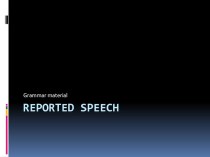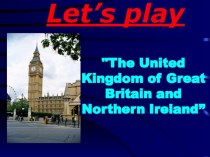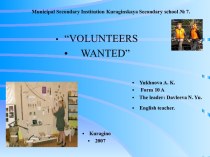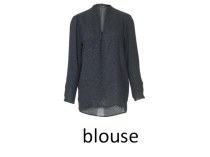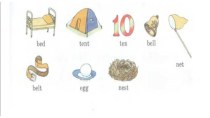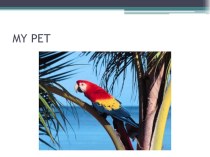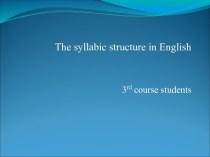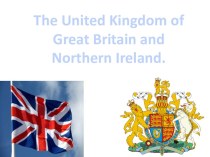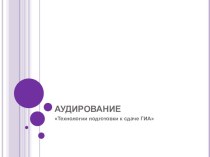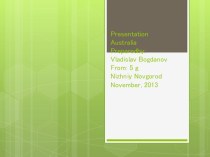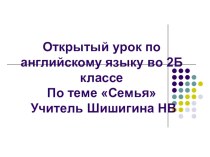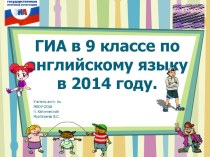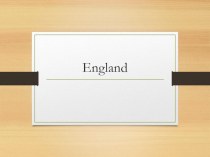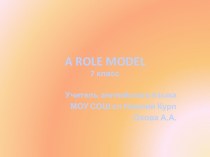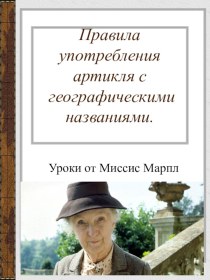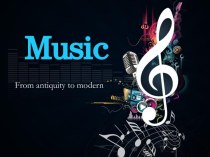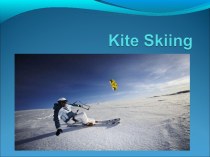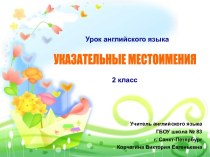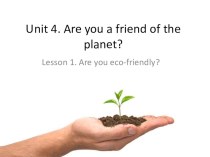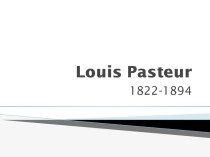- Главная
- Разное
- Бизнес и предпринимательство
- Образование
- Развлечения
- Государство
- Спорт
- Графика
- Культурология
- Еда и кулинария
- Лингвистика
- Религиоведение
- Черчение
- Физкультура
- ИЗО
- Психология
- Социология
- Английский язык
- Астрономия
- Алгебра
- Биология
- География
- Геометрия
- Детские презентации
- Информатика
- История
- Литература
- Маркетинг
- Математика
- Медицина
- Менеджмент
- Музыка
- МХК
- Немецкий язык
- ОБЖ
- Обществознание
- Окружающий мир
- Педагогика
- Русский язык
- Технология
- Физика
- Философия
- Химия
- Шаблоны, картинки для презентаций
- Экология
- Экономика
- Юриспруденция
Что такое findslide.org?
FindSlide.org - это сайт презентаций, докладов, шаблонов в формате PowerPoint.
Обратная связь
Email: Нажмите что бы посмотреть
Презентация на тему по английскому языку на тему Modals (present)
Содержание
- 2. I must go to the post office.Can I borrow your umbrella?
- 3. The most commonly used modals in English
- 4. Here the modal shows that the speaker
- 5. Here the modals turn an instruction into
- 6. Modals are always followed by the base
- 7. Modals do not use do and did
- 8. Unlike other verbs, modals do not use
- 9. Can: abilityTom can play chess.I can’t pick the box up, it’s too heavy.
- 10. Can: permissionYou can use my phone if
- 11. Complete the sentences with can or can't.I
- 12. May: permissionMay I be excused?May we come in?
- 13. Must and have (got) to: necessityThe chicken must be cooked thoroughly.You have to book in advance.
- 14. Must is used in stating formal rules and regulations, e.g.Visitors must remove all footwear before entering.
- 15. Have (got) to is used to describe
- 16. Should and ought to: obligationYou should/ought to
- 17. They are also often used to give
- 18. Put the words in the correct order.1.
- 19. Скачать презентацию
- 20. Похожие презентации
I must go to the post office.Can I borrow your umbrella?
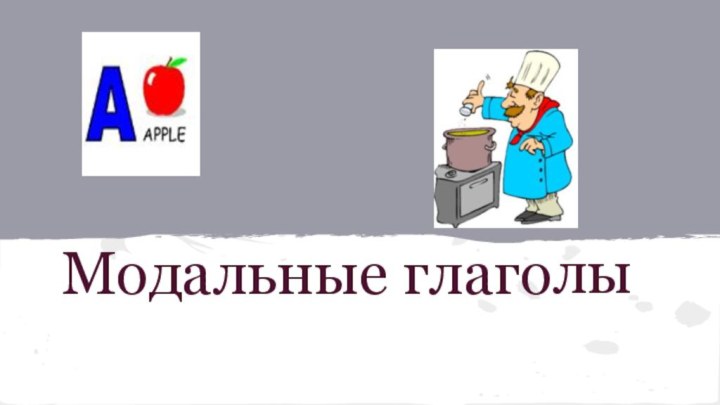
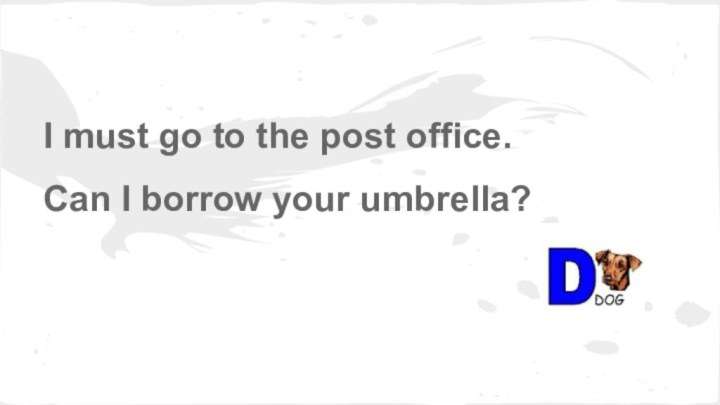

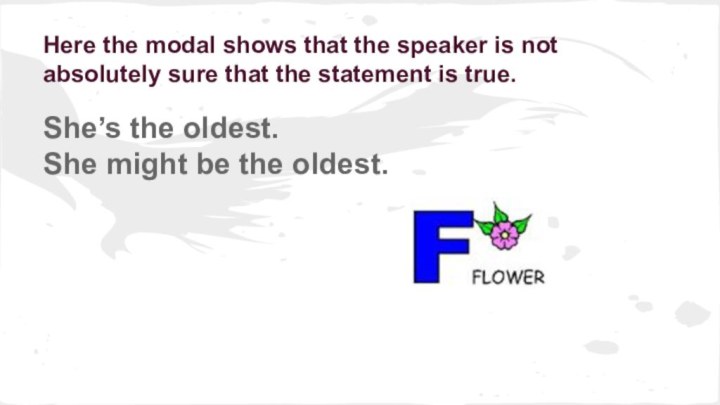


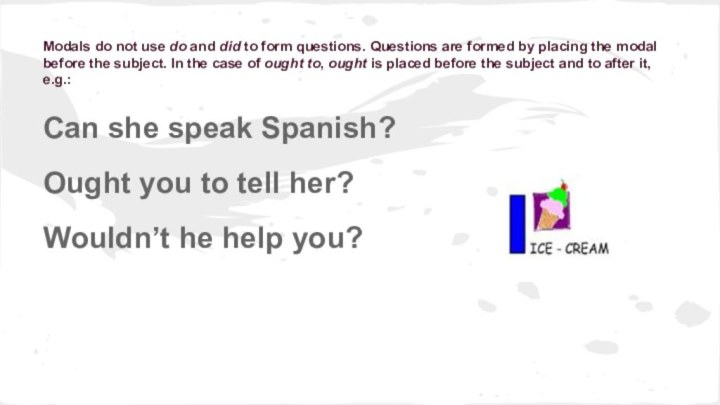

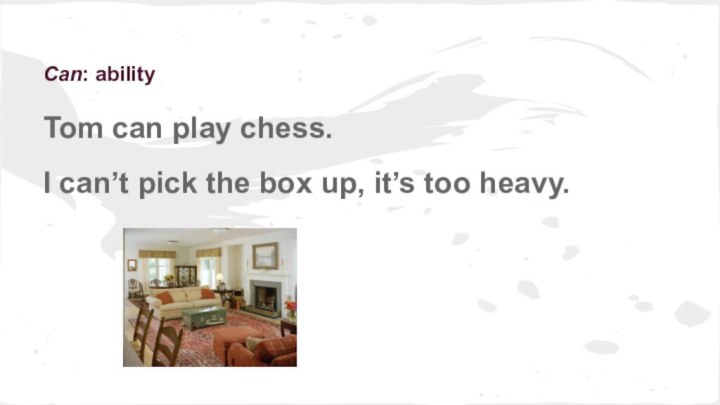
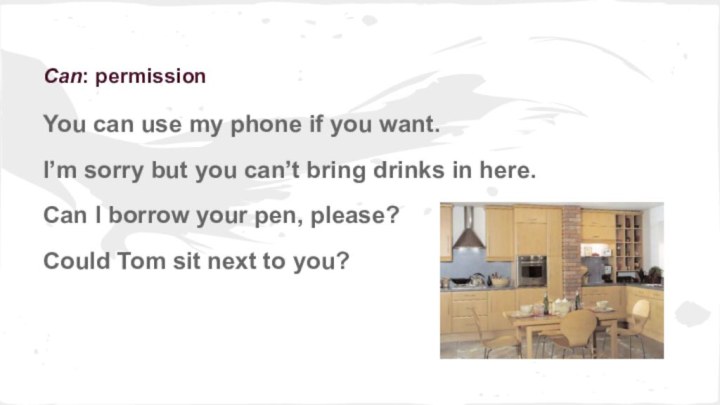
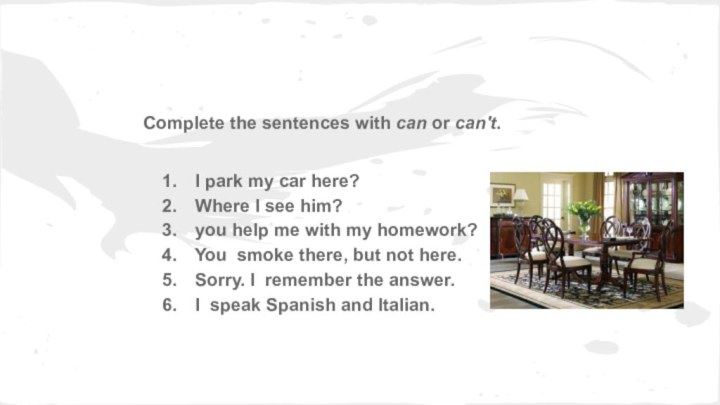




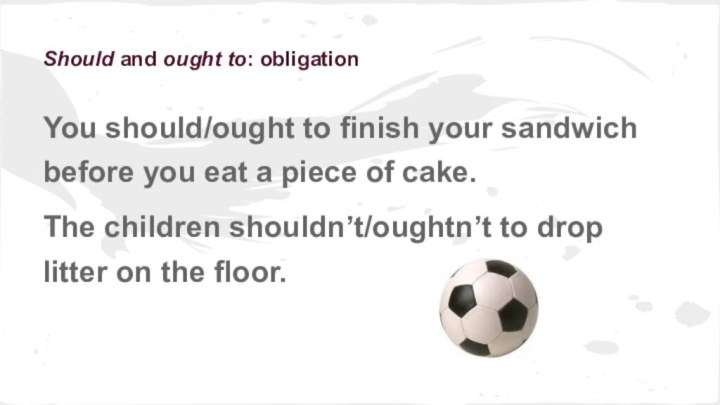
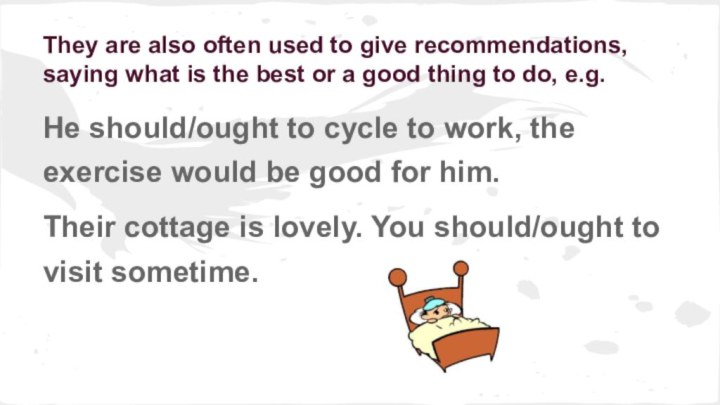

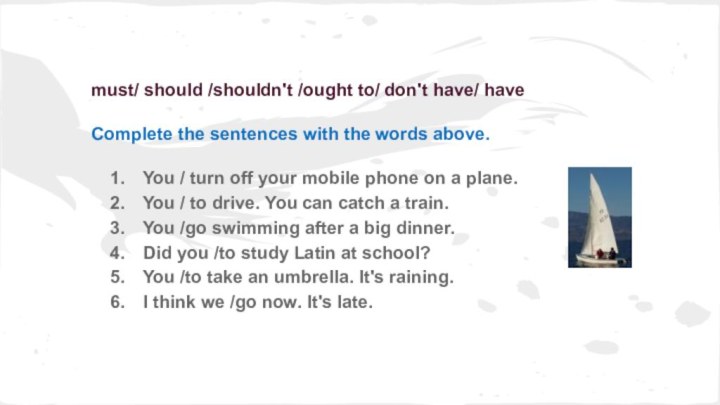
Слайд 3
The most commonly used modals in English are:
can
/could/ will /would /may
might/ must /ought to /should
Слайд 4 Here the modal shows that the speaker is
not absolutely sure that the statement is true.
She’s the
oldest.She might be the oldest.
Слайд 5 Here the modals turn an instruction into a
polite request
Close the door.
Could/would/will you close the door?
Слайд 6 Modals are always followed by the base form
of the verb, e.g.:
I might play tennis tomorrow.
You ought
to tell her.I might be playing tennis tomorrow.
Слайд 7 Modals do not use do and did to
form questions. Questions are formed by placing the modal
before the subject. In the case of ought to, ought is placed before the subject and to after it, e.g.:Can she speak Spanish?
Ought you to tell her?
Wouldn’t he help you?
Слайд 8 Unlike other verbs, modals do not use do
and did to form negatives. Negatives are formed by
putting not immediately after the modalI might not play tennis tomorrow.
You ought not to tell her.
She can’t come.
We won’t be ready until five.
Слайд 10
Can: permission
You can use my phone if you
want.
I’m sorry but you can’t bring drinks in here.
Can
I borrow your pen, please?Could Tom sit next to you?
Слайд 11
Complete the sentences with can or can't.
I park
my car here?
Where I see him?
you help me with
my homework?You smoke there, but not here.
Sorry. I remember the answer.
I speak Spanish and Italian.
Слайд 13
Must and have (got) to: necessity
The chicken must
be cooked thoroughly.
You have to book in advance.
Слайд 14 Must is used in stating formal rules and
regulations, e.g.
Visitors must remove all footwear before entering.
Слайд 15
Have (got) to is used to describe necessity
resulting from a situation and which is not usually
the speaker’s decision.You’ve got to take off your shoes before you can go in.
Слайд 16
Should and ought to: obligation
You should/ought to finish
your sandwich before you eat a piece of cake.
The
children shouldn’t/oughtn’t to drop litter on the floor.Слайд 17 They are also often used to give recommendations,
saying what is the best or a good thing
to do, e.g.He should/ought to cycle to work, the exercise would be good for him.
Their cottage is lovely. You should/ought to visit sometime.
Слайд 18
Put the words in the correct order.
1. be
she think I sorry. should
2. shout. to ought
You not 3. home go ought to now. We
4. a drink shouldn't People lot of coffee.
5. us. The to listen government should
6. to They drive carefully. more ought
Should / shouldn't
